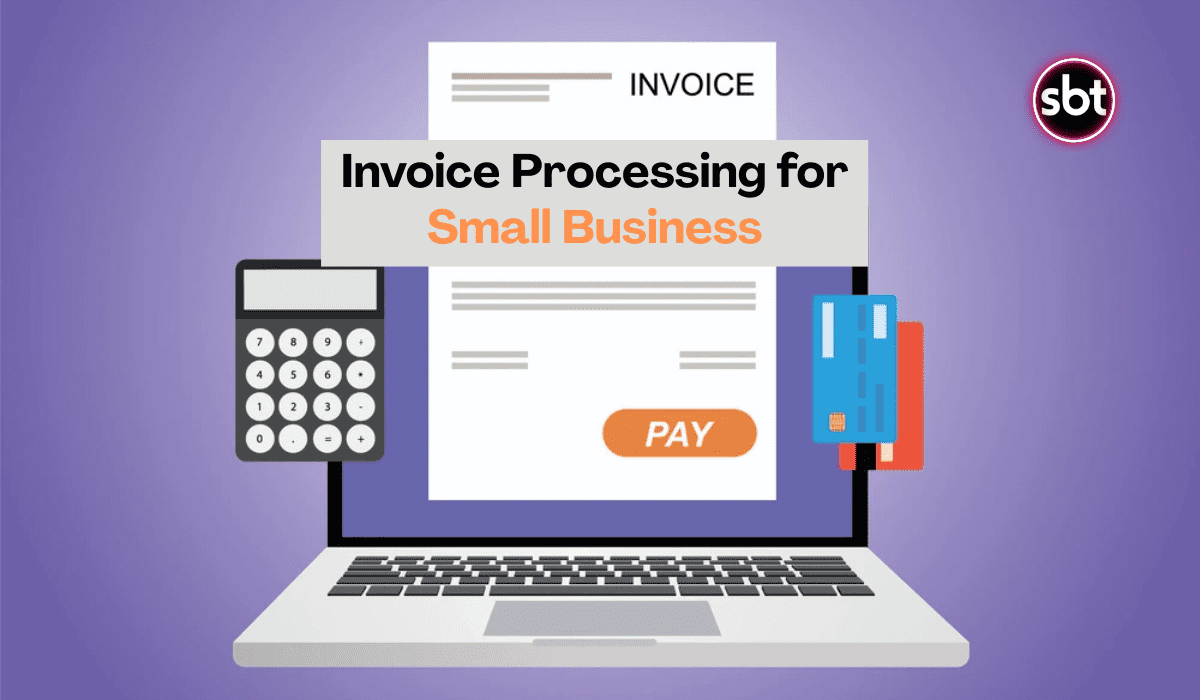Why Does Invoice Processing Matter for Small Businesses?
Running a small business comes with many responsibilities. One of the most important yet often overlooked tasks is invoice processing. It’s not just about sending bills—it plays a crucial role in keeping the business financially stable.
Poor invoice management can lead to cash flow issues, missed payments, and even legal troubles. On the other hand, efficient invoice processing ensures timely payments, organized records, and better financial health.
For small businesses, where every dollar counts, a well-structured invoicing system can make a significant difference. It helps in tracking income, managing expenses, and maintaining smooth operations.
In this article, we’ll explore why invoice processing is essential for small businesses. From cash flow management to tax compliance, we’ll cover everything you need to know.
Financial Organization and Tracking
Every business, big or small, needs to keep track of its earnings. Invoices act as documented proof of the money coming in and going out. Without proper invoicing, businesses may struggle to measure their financial health.
Tracking invoices helps in understanding payment patterns. For example, if a client regularly delays payments, a business owner can take action by adjusting payment terms or sending reminders.
A structured invoice system also helps in preventing financial losses. Lost or incorrect invoices can lead to missed payments and disputes, which ultimately hurt the company’s revenue.
Additionally, invoices help in setting financial goals. By analyzing past payments, businesses can forecast future income and adjust strategies accordingly.
Having a centralized invoicing system makes it easier to generate reports, track revenue trends, and make informed business decisions.
See Also | How to Get a Credit Card Machine for Your Small Business
Enhancing Cash Flow and Ensuring Prompt Payments
One of the biggest challenges small businesses face is maintaining a steady cash flow. Late payments can create financial stress, making it hard to cover daily expenses and invest in growth.
Setting clear payment terms on invoices helps businesses receive payments on time. Mentioning due dates, late fees, and payment methods ensures that clients understand their obligations.
Timely follow-ups and reminders also play a key role. Businesses that send reminders a few days before the due date often experience faster payments and fewer delays.
Using automation tools for invoicing speeds up the process. Digital invoices reach clients instantly, reducing waiting time and eliminating manual errors.
When cash flow is managed efficiently, businesses can focus on expansion rather than constantly worrying about outstanding payments.
Legal Protection and Documentation
Invoices are not just financial records; they serve as legal documents that protect businesses in case of disputes. If a client claims they never received a service or product, an invoice provides clear proof.
Well-documented invoices help in legal disputes by showing the agreed-upon terms. This can prevent potential lawsuits and safeguard the business from financial losses.
Regulatory compliance is another major factor. Many small businesses are required to maintain invoices for tax and audit purposes. Failing to do so can result in penalties and complications during tax filing.
Additionally, invoices protect businesses from fraudulent claims. If a client disputes a payment, having a proper invoicing system ensures that businesses have the necessary proof to defend themselves.
Keeping digital copies of invoices further strengthens legal protection. Electronic records are harder to lose and can be easily retrieved when needed.
Professionalism and Credibility
A well-structured invoice enhances a business’s reputation. It shows professionalism and assures clients that they are dealing with a serious and organized company.
Clients are more likely to trust businesses that provide detailed and transparent invoices. A clear invoice includes descriptions of services, pricing, and payment terms, reducing confusion and disputes.
Branding also plays a role in credibility. Adding a business logo, contact details, and company information makes invoices look more official and polished.
Professional invoicing also increases the chances of repeat business. Clients appreciate businesses that provide organized billing, as it makes their own financial management easier.
A reliable invoicing system fosters trust, encouraging clients to process payments faster and continue long-term business relationships.
Streamlining Bookkeeping and Accounting
Accounting is one of the most time-consuming tasks for small business owners. A well-organized invoicing system makes it easier to track earnings, expenses, and profits.
Using accounting software integrated with invoicing tools simplifies financial management. Instead of manually recording payments, businesses can automate data entry, reducing errors and saving time.
Invoices also make tax filing smoother. When all transactions are documented properly, businesses can avoid last-minute scrambling during tax season.
Additionally, businesses can use invoice data to create financial reports. These reports help in understanding profit margins, seasonal sales trends, and customer payment behavior.
By streamlining bookkeeping, small businesses can focus more on growing their operations rather than struggling with paperwork.
Effective Communication of Payment Terms
Clear communication is key when it comes to payments. Well-drafted invoices help businesses set expectations and ensure clients understand payment policies.
Including details like due dates, accepted payment methods, and late fees prevents misunderstandings. When clients are aware of the consequences of late payments, they are more likely to pay on time.
Businesses can also use invoices to offer discounts for early payments, encouraging clients to settle their dues quickly.
Miscommunication often leads to delays. A structured invoice eliminates ambiguity and reduces back-and-forth conversations regarding payments.
Having a standard invoicing format also improves consistency, making it easier for both the business and clients to handle transactions efficiently.
Simplifying Tax Preparation and Compliance
One of the biggest headaches for small businesses is preparing for taxes. Invoices provide crucial documentation that simplifies the process.
Government agencies require businesses to maintain records of their transactions. A well-organized invoicing system ensures that businesses stay compliant and avoid penalties.
Invoices also help in tracking deductible expenses. By maintaining proper records, businesses can claim tax benefits and reduce liabilities.
Having digital invoices makes tax audits less stressful. Instead of searching through piles of paperwork, business owners can quickly access relevant records.
By keeping invoices in order, businesses can focus on maximizing profits while staying compliant with tax laws.
Leveraging E-Invoicing for Enhanced Efficiency
With advancements in technology, e-invoicing has become a game-changer for small businesses. It reduces costs, saves time, and minimizes human errors.
Electronic invoices reach clients instantly, eliminating postal delays and speeding up the payment cycle.
One of the biggest advantages of e-invoicing is error reduction. Automated systems prevent miscalculations and ensure invoices are accurate before sending them out.
Businesses using e-invoicing also experience better cash flow management. Since payments are processed faster, there’s less waiting time for funds to arrive.
Additionally, e-invoicing helps in maintaining organized financial records, making tax filing and audits easier.
For businesses looking to scale, e-invoicing offers flexibility. It allows businesses to handle larger transaction volumes without increasing administrative burdens.
In Conclusion
Invoice processing is more than just sending bills; it’s a critical function that impacts a business’s success. Without proper invoicing, businesses risk financial instability, payment delays, and legal complications.
By implementing an efficient invoicing system, small businesses can ensure timely payments, maintain organized financial records, and strengthen their credibility.
Adopting digital invoicing solutions further enhances efficiency, reduces errors, and speeds up transactions. In a competitive business world, these small improvements can make a huge difference.
Small businesses that take invoicing seriously set themselves up for long-term success. It’s not just about getting paid—it’s about building a sustainable and financially stable business.







